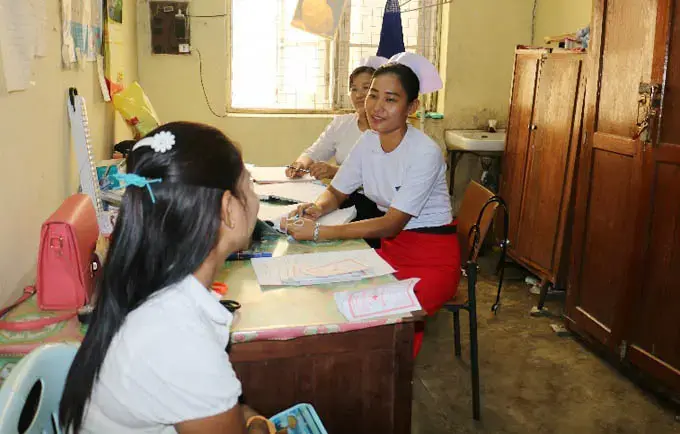In rural North Shan, close to Myanmar's border to China, youth working for a Youth Information Corner (YIC), supported by UNFPA, are creating change out of challenge. According to young people here, early marriage is one of the main issues, in addition to problems such as drug abuse and unsafe abortions. In order to address these challenges, young people are dedicating their spare time to affect change in their communities. The way in which they are doing this is a ground-breaking example of how young people in multi-ethnic societies can work together to bring about positive change.
In order to ensure non-discriminatory access to quality information on sexual and reproductive health (SRH) and other youth related health information, young people divide themselves into groups according to their respective ethnicity when they are conducting outreach activities. They do this in order to ensure that language barriers do not become a challenge for access to quality information, which is a risk in multi-ethnic societies with many local languages but limited provision of health services and information. For example, the Chinese youth take care of outreach to Chinese speaking youth, and the Shan youth reach out to Shan speaking youth.
In addition to outreach activities, youth work hard to financially sustain their activities through a range of different fundraising activities. This is done together with the management of the rural health facility in which their YIC is located. "We cannot just rely on receiving funding from UNFPA all the time. We started doing fundraising for our YIC," one young man explains. As a result of their very successful fundraising, the youth were able to invest in a lifesaving referral system, with an emphasis on reaching young girls who had unsafe abortions and were in need of post-abortion care.





